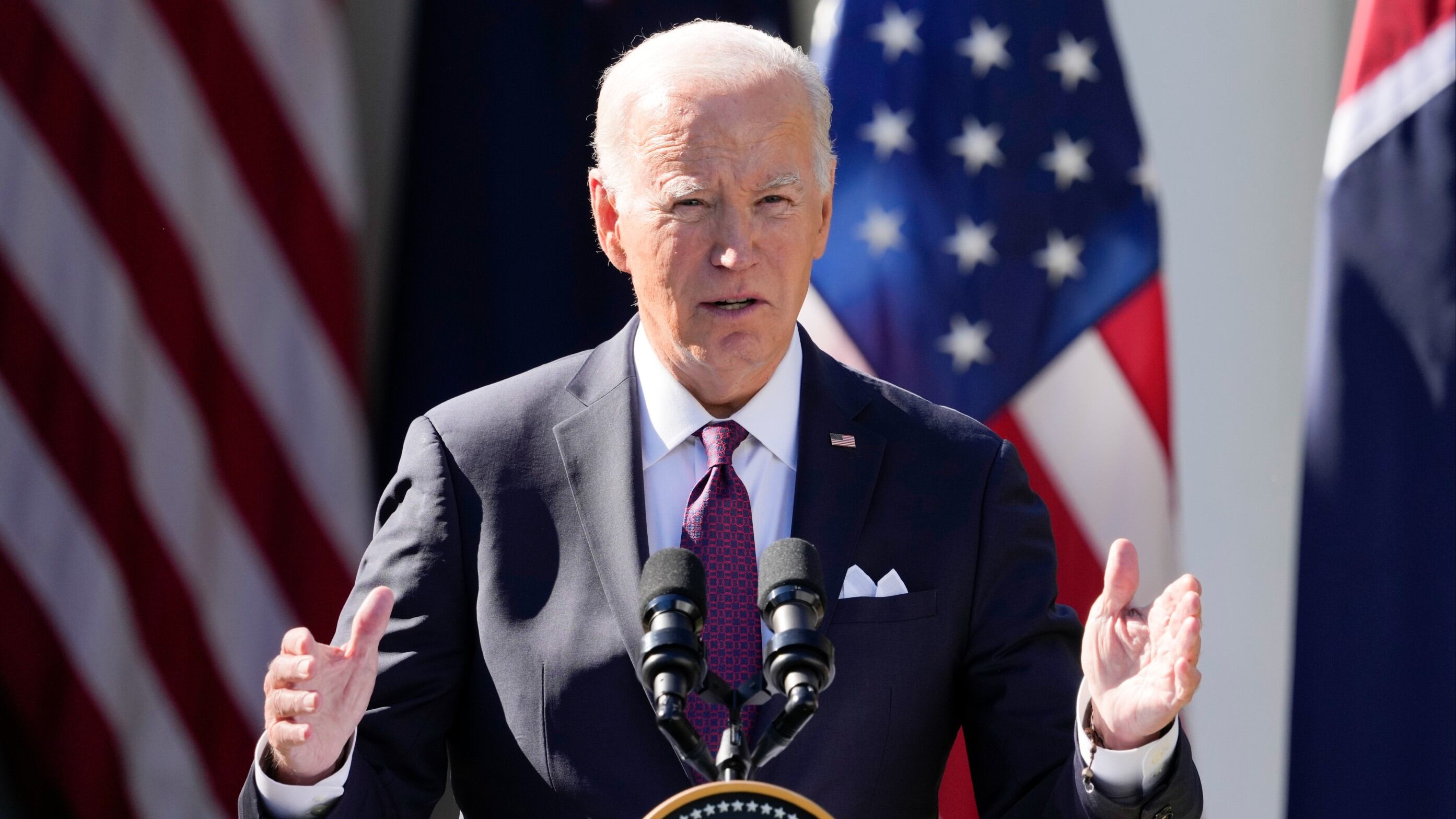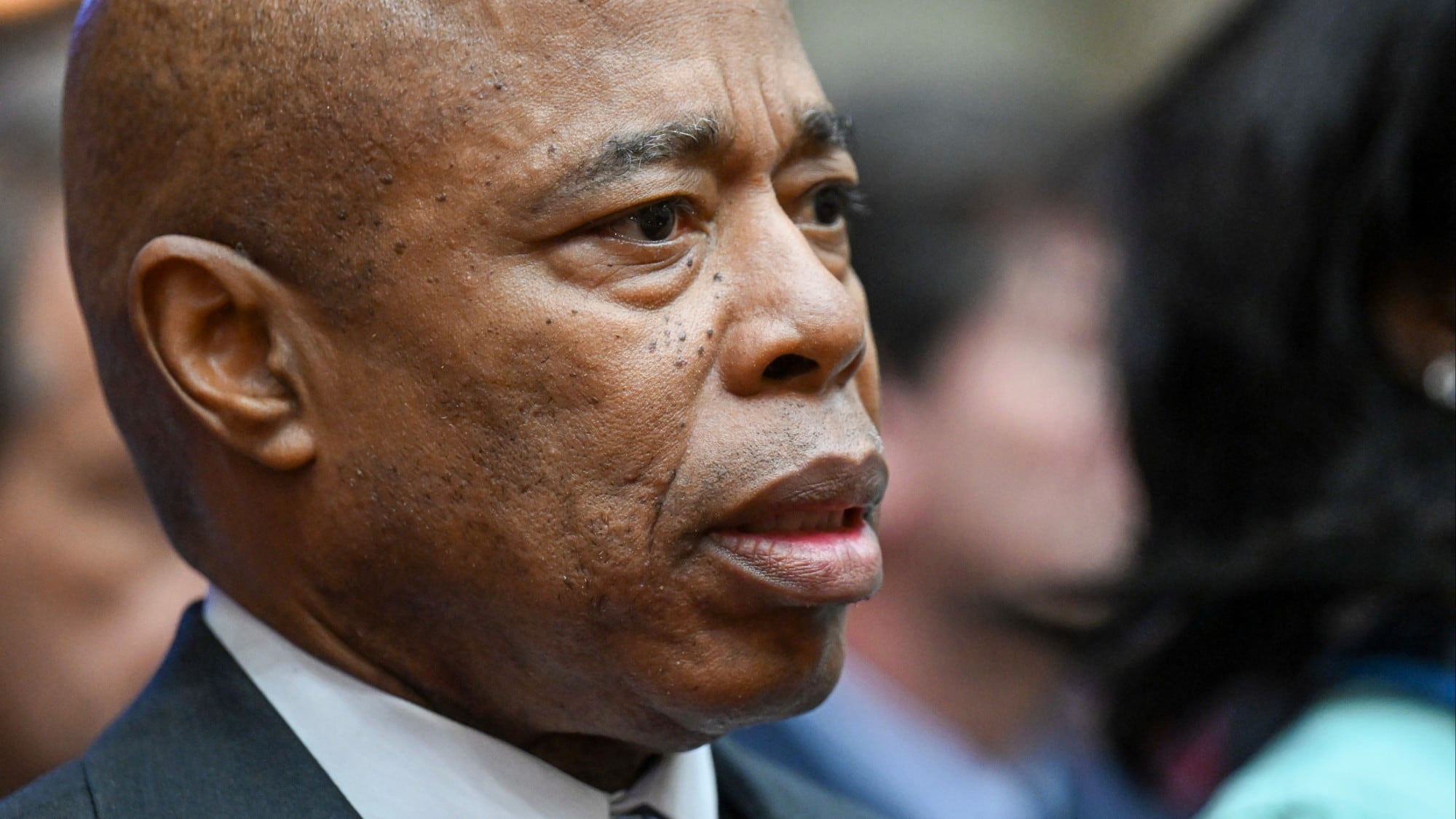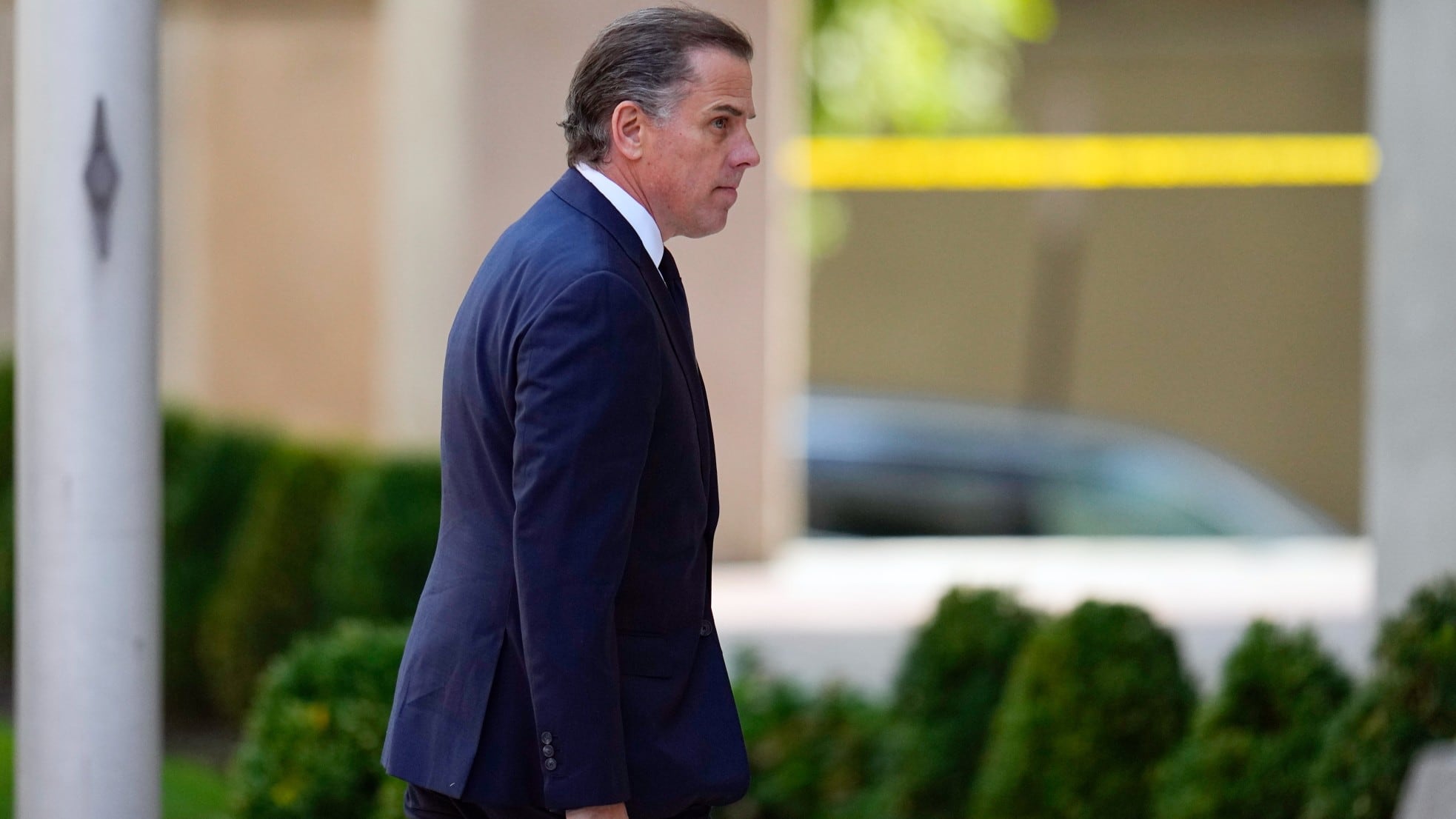By Mary Clare Jalonick
The nation's top military and diplomatic leaders urged an increasingly divided Congress on Tuesday to send immediate aid to Israel and Ukraine, arguing at a Senate hearing that broad support for the assistance would signal U.S. strength to adversaries worldwide.
The testimony from Defense Secretary Lloyd Austin and Secretary of State Antony Blinken to the Senate Appropriations Committee came as the administration’s massive $105 billion emergency aid request for conflicts in the two countries encountered roadblocks.
While there is bipartisan support in the Democratic-led Senate for aid to both Ukraine and Israel, the request faces deep problems in the Republican-led House. New Speaker Mike Johnson has proposed focusing on Israel alone, and slashing money for the Internal Revenue Service to pay for it.
As the congressional divisions deepen, Blinken and Austin warned that the consequences of failing to help Ukraine in its war with Russia and Israel as it strikes back against Hamas would be dire. Inaction, they said, would threaten the security of the U.S. and the rest of the world.
“We now stand at a moment where many are again making the bet that the United States is too divided or distracted at home to stay the course,” Blinken said. “That is what is at stake.”
Austin said that if the United States fails to lead, ”the cost and the threats to the United States will only grow. We must not give our friends, our rivals, or our foes any reason to doubt America’s resolve."
President Joe Biden has requested $14.3 billion for Israel, $61.4 billion to support Ukraine, $9.1 billion for humanitarian efforts in Gaza and elsewhere and $7.4 billion for the Indo-Pacific, where the U.S. is focused on countering China's influence. Some of the Ukraine funding would go toward replenishing domestic stockpiles of weapons that have already been provided.
The White House has also requested around $14 billion to protect the U.S. border. That money would be used to boost the number of border agents, install new inspection machines to detect fentanyl and to increase staffing for processing asylum cases.
But the House is trying to set aside much of Biden's request for now to focus on a roughly $14.5 billion package for Israel. That plan faced immediate resistance among Senate Democrats — and put pressure on the Senate Republicans who support the Ukraine aid but are conscious of growing concerns about it within their party.
Speaking on the Senate floor, Senate Majority Leader Chuck Schumer said the House proposal "is clearly designed to divide Congress on a partisan basis, not unite us.” He said he hopes Johnson realizes he made a “grave mistake” and reverses course.
The two Cabinet secretaries argued that the aid should be tied together because the conflicts are interconnected. Blinken said that assisting Ukraine and Israel will strengthen the U.S. position against Iran, which is the biggest financial backer of Hamas.
“Since we cut off Russia’s traditional means of supplying its military, it has turned more and more to Iran for assistance,” Blinken said. “In return, Moscow has supplied Iran with increasingly advanced military technology, which poses a threat to Israel’s security. Allowing Russia to prevail with Iran’s support will embolden both Moscow and Tehran.”
Austin said the money would help Israel and Ukraine defend themselves against aggression — and also replenish U.S. stockpiles.
“In both Israel and Ukraine, democracies are fighting ruthless foes bent on their annihilation,” Austin said. “We will not let Hamas or Putin win. Today’s battles against aggression and terrorism will define global security for years to come.”
Senate Appropriations Chairwoman Patty Murray, D-Wash., said at the start of the hearing that she and the panel’s top Republican, Maine Sen. Susan Collins, were drafting “strong bipartisan legislation” that would include aid for both countries.
“Make no mistake, we need to address all of these priorities as part of one package — because the reality is these issues are all connected, and they are all urgent,” Murray said.
Blinken and Austin were repeatedly interrupted by dozens of protesters in the room who called for Israel to end its bombardment of the Gaza Strip, and the hearing was suspended as the demonstrators were escorted out. “Cease-fire now!” they yelled. “Save the children of Gaza!”
After the protesters were removed, Blinken said he heard “the passions expressed in this room and outside this room.” He said that the U.S. is committed to protecting civilian life, “but all of us know the imperative of standing up with our allies and partners when their security, when their democracies, are threatened.”
Some Republicans have expressed concerns that the humanitarian aid could end up in the wrong hands. Tennessee Sen. Bill Hagerty asked Blinken to guarantee that “not one dime” of taxpayer money will go to Hamas and terrorist activities.
Blinken said that the U.S. has an ability to track the aid. “The overwhelming majority of assistance so far is getting to people who need it, and we need more,” he said. "The needs are desperate.”
Despite growing questions about the Ukraine aid within the Republican conference, Senate GOP Leader Mitch McConnell has forcefully advocated tying the aid for Ukraine and Israel together. He hosted Oksana Markarova, the Ukrainian ambassador to the United States, at an event in Kentucky on Monday and told the audience, “this is a moment for swift and decisive action.”
Senate Republicans who support the Ukraine aid are uncertain of the path forward. Sen. John Thune of South Dakota, the No. 2 Senate Republican, said there are a significant number of Republicans “who believe that these are all vital national security interests and priorities of the United States.” At the same time, trying to pass all of them together is complicated, he said.
Republican Sen. Joni Ernst of Iowa said she wants to see Ukraine aid passed, and “I don’t care how it happens.” She said she is open to the IRS cuts that Republicans proposed for the Israel funding in the House.
Senate Republicans who have opposed additional Ukraine aid threw support behind the House approach. “We have a Republican majority in the House, we need to follow the speaker," said Florida Sen. Rick Scott.
Missouri Sen. Josh Hawley said he wanted to see the U.S. focus on the Pacific and Asia rather than Ukraine, arguing that China posed a long-term threat. “We can do more in Ukraine or we can do what we need to do in the Pacific,” he said.
Further complicating the package, a group of Senate Republicans have been negotiating border security measures that would go beyond Biden’s request, an attempt to help control the influx of migrants.
Maine Sen. Susan Collins, the top Republican on the Appropriations panel, supports tying the aid to the two countries together. But added border security is needed as well, she said. “This real threat to our homeland must also be addressed,” Collins said.
The House could pass its Israel aid package by the end of the week. In an interview on Fox News on Tuesday, Johnson said he hopes “most if not all” of the Democrats join Republicans in voting for it. He said he would call Schumer to discuss it.
“This is a matter of good versus evil,” Johnson said.
Blinken made a quick trip to Johnson's office after his Senate testimony — an effort to push a combined aid package to the new speaker, according to State Department spokesman Matthew Miller.
The secretary would only say as he left that it “was a very good meeting. I appreciate the opportunity.”
Associated Press writers Kevin Freking, Stephen Groves, Lisa Mascaro, Tara Copp and Matthew Lee contributed to this report.












